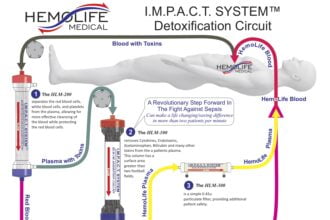As the world readies for the upcoming UN high-level meeting on non-communicable diseases, the importance of good tobacco control efforts has been (yet again) affirmed. Along with this renewed interest is discussion around innovations in the implementation of tobacco control policies. These changes don’t need to start from scratch; in fact it is arguable that the combination of two particularly “un-novel” solutions to tobacco control—taxation and policy based lending—may be the innovation we need to curb tobacco usage globally.
As the world readies for the upcoming UN high-level meeting on non-communicable diseases, the importance of good tobacco control efforts has been (yet again) affirmed. Along with this renewed interest is discussion around innovations in the implementation of tobacco control policies. These changes don’t need to start from scratch; in fact it is arguable that the combination of two particularly “un-novel” solutions to tobacco control—taxation and policy based lending—may be the innovation we need to curb tobacco usage globally.
 Evidence for high tobacco taxes as mechanism for curbing tobacco use has been well examined in literature and deemed a cost-effective method to reduce tobacco consumption and related mortality in every region of the world. The World Bank recommends tobacco tax levels equivalent to two-thirds or more of the price of the tobacco product. However, a 2009 report from the WHO found that over 70 percent of low-income counties had tobacco taxes of 50 percent or less of the retail price. Overall, the affordability of tobacco products has actually increased over time in most lower- and middle-income countries (LMIC)—a function of increasing incomes and low tax rates as a percentage of the price of tobacco products.
Evidence for high tobacco taxes as mechanism for curbing tobacco use has been well examined in literature and deemed a cost-effective method to reduce tobacco consumption and related mortality in every region of the world. The World Bank recommends tobacco tax levels equivalent to two-thirds or more of the price of the tobacco product. However, a 2009 report from the WHO found that over 70 percent of low-income counties had tobacco taxes of 50 percent or less of the retail price. Overall, the affordability of tobacco products has actually increased over time in most lower- and middle-income countries (LMIC)—a function of increasing incomes and low tax rates as a percentage of the price of tobacco products.
The multilateral development banks (MDB) and the International Monetary Fund (IMF) routinely engage with governments to provide policy-based and programmatic lending for both the fiscal and health sectors. Policy-based loans condition tranches of funding on agreed changes in policy. Programmatic loans tie tranches of funding to progress on agreed policy design and implementation and/or on coverage and other results.
Last month Bill Savedoff suggested combining the two ideas above—that the World Bank raise tobacco taxes as part of their policy lending. Here, I suggest a mechanism on how this could work—by introducing financial and reputational incentives for country governments and MDB/IMF teams to include tobacco taxation and other tobacco control policies in their policy-based and programmatic lending programs.
This is appropriate because:
(i) Unlike other areas of health intervention, tobacco taxation is known to be effective in reducing tobacco use prevalence in most settings around the world;
(ii) Tobacco taxation has a very small or even negative cost to governments;
(iii) The implementation of the tax can be quickly, easily and transparently monitored by the MDB and external organizations, without distorting surveys and administrative data on coverage and outcomes; and
(iv) Only the commitment of political leadership at the level of prime minister, finance minister and health minister is required to implement, increasing the feasibility and effectiveness of the measure.
On the recipient government side, the financial incentives for policy change are already in place from previous lending operations. The ability to use the loan’s proceeds for general budget support is a main incentive for ministries of finance, complimented by factors such as the amount and concessional terms of the loan. To enhance these existing financial incentives, a modest amount of philanthropic funding could “ride” on the lending operations, with its disbursement attached to policy implementation targets such as maintenance of the tobacco tax at two-thirds the level of price for an 18-month period or routine reporting on tobacco use prevalence. Riding a grant on a lending operation has the advantage of leveraging existing financial incentives, while adding visibility to the operation—adding to the reputational incentives for tobacco control.
The MDB side will also benefit from reputational incentives attached to the operation’s visibility. Grant funding could be provided for accompanying technical assistance and policy dialogue on tobacco taxation and other control measures, together with a process to recognize outstanding project teams within and outside the banks.
There are many key advantages to this method for financing tobacco control, namely:
- Additional or external funding would be helpful but not necessarily required;
- Small or negative cost to countries to implement;
- Can be viewed as a “pilot” to increase demand for tobacco control reforms that could be evaluated and, if successful, subsequently scaled and maintained using existing funding and lending operations;
- Builds on country-specific economic evidence packages developed by the World Bank and The Union;
- Non-price tobacco control policies can also be included. For example, better quality reporting according to FCTC requirements could be included among policy conditionality;
- Same mechanisms could be used to tie tranches of funding to tobacco use prevalence outcomes;
- Can be focused on the World Bank and/or on the regional development banks. Given their size and geographic focus, the latter can sometimes be more flexible and responsive to external donors.
But, there are a few disadvantages that still need to be considered as well:
- Unlike COD Aid, this method predetermines policies intended to reduce tobacco use, possibly limiting the creativity and autonomy of recipient governments in their efforts;
- Conditioning funding on policy change and maintenance has had a mixed track record in implementation, but is reportedly improving over time with better development outcomes—as shown in the World Bank’s report on the matter, here.
MDB operations represent unique opportunities to discuss and scale up the tobacco control agenda; yet in spite of their potential, only a handful of lending operations have included tobacco control measures. Overall this method could offer substantial benefits to global health by nudging LMICs to reduce tobacco consumption, increase tax revenues, and save lives.






